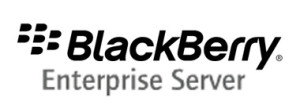 The head of BlackBerry’s enterprise services business is plotting an aggressive launch of a new version of the company’s core enterprise server later this year as BlackBerry seeks to regain some of the ground it’s lost over the last few years.
The head of BlackBerry’s enterprise services business is plotting an aggressive launch of a new version of the company’s core enterprise server later this year as BlackBerry seeks to regain some of the ground it’s lost over the last few years.
The BlackBerry Enterprise Server 12 (BES12) software helps corporate and government users manage policies, rules and restrictions on smartphones used by their employees. BlackBerry hopes the wider handset support in the new software will attract users of BES10, the current version, and BES5, an earlier version that is still in use by many of the company’s customers.
“With BES12 our objective is a completely seamless experience,” said John Sims, president of BlackBerry’s global enterprise services division, in an interview at the Mobile World Congress expo in Barcelona. Sims joined the company in January from SAP and is one of a number of new executives recruited by recently-appointed CEO John Chen.
The wider support is intended to solve an existing headache for enterprise IT managers. BES10 supports Apple, Android and BlackBerry 10 devices, but not older generations of BlackBerry handsets. For those, companies need to run the older BES5 software.
BlackBerry offers a management console that sits above the two BES server versions, but customers have complained of a “fragmented experience,” said Sims.
BES12 will bring these together in a single package and add support for Windows Phone 8, which is slowly gaining popularity in Europe and some developing markets.
BlackBerry will launch an early access program for BES12 sometime in the middle of the year and will invite customers to take part. That will give them a preview of the new software and allow them to provide feedback at an earlier stage in the development process than a traditional beta test would normally offer.
There’s no launch date or even launch month for BES12, but BlackBerry said it will ship in late 2014.
When it ships it will be for deployment on servers owned by customers and on private clouds. A cloud-based version for small and medium-size enterprise customers will follow in early 2015, said Sims.
A new handset called Q20 that features a keyboard, buttons and trackball similar to classic BlackBerry devices will also be available at the same time as BES12.
“There’s a lot of people out there in the BlackBerry base that are still using old devices with that keyboard,” said Sims. “The Q20 gives them a very solid option and allows them to step forward into a new generation.”
While BES12 will support a wide range of handsets and platforms, Sims doesn’t see it as something that will sell as a device management system to companies that don’t already have BlackBerry devices with users. At least not initially.
“Where we may enter companies that don’t have BlackBerry is through BB Protect,” he said.
BlackBerry Protect, also announced this week, is a new secure messaging and communication platform that BlackBerry will push to businesses working in regulated industries, such as finance and health care.
“We do see that as potentially a way to get into companies that don’t have BlackBerry but are very interested in secure messaging. We could see that start to emerge, maybe not with BB Protect in its first instance, but with that family of products.”
Sims said that further in the future, BlackBerry could release software and messaging products targeted at specific vertical markets. He gave the example of a system that enabled doctors to hold video consultations and share patient records in a secure environment.
BlackBerry once dominated the corporate mobile IT space with its distinctive handsets and companion BlackBerry Enterprise Server software. But the rise of Apple and Android combined with the company’s missteps in its hardware business have hit its market share.





